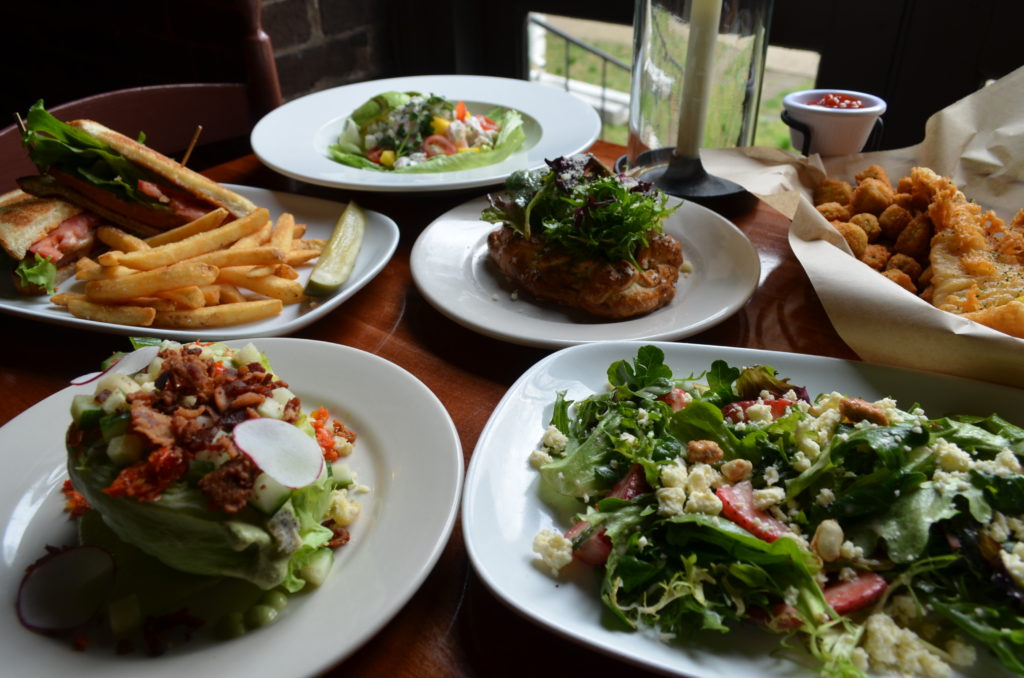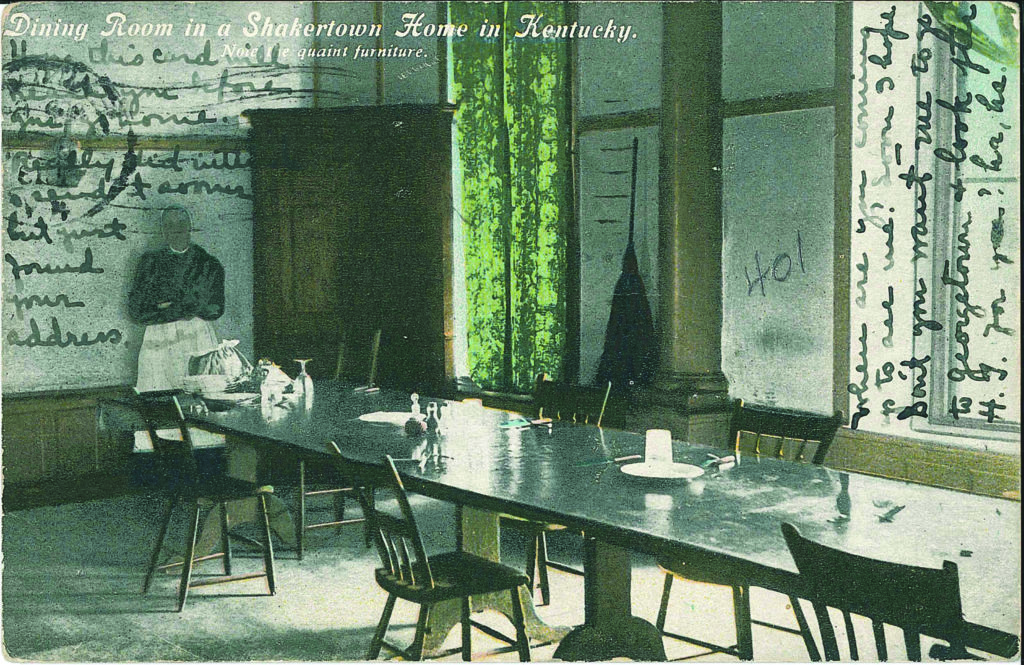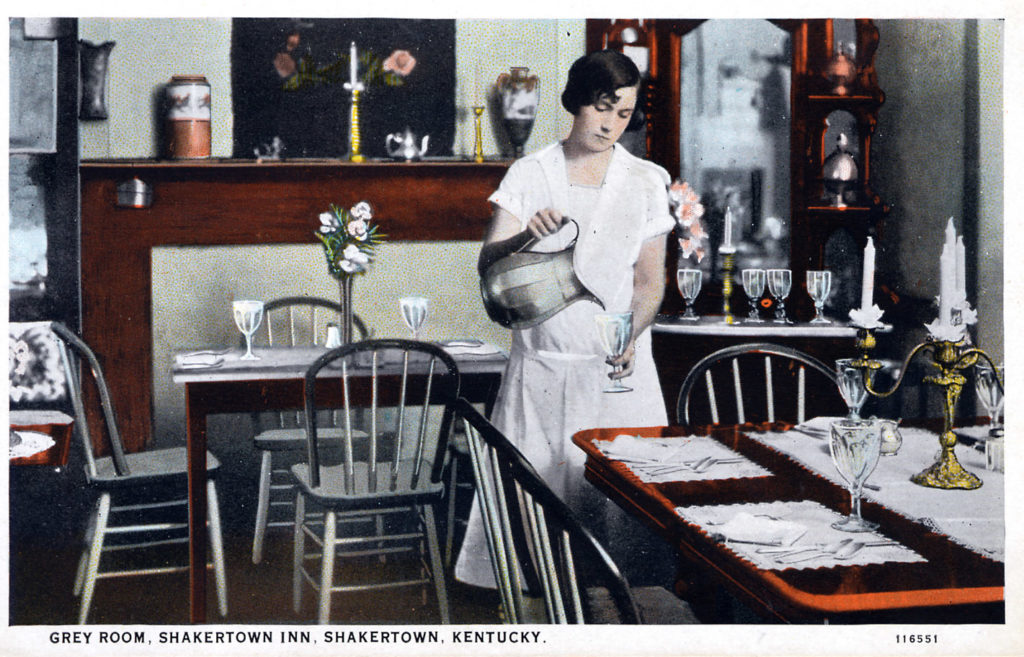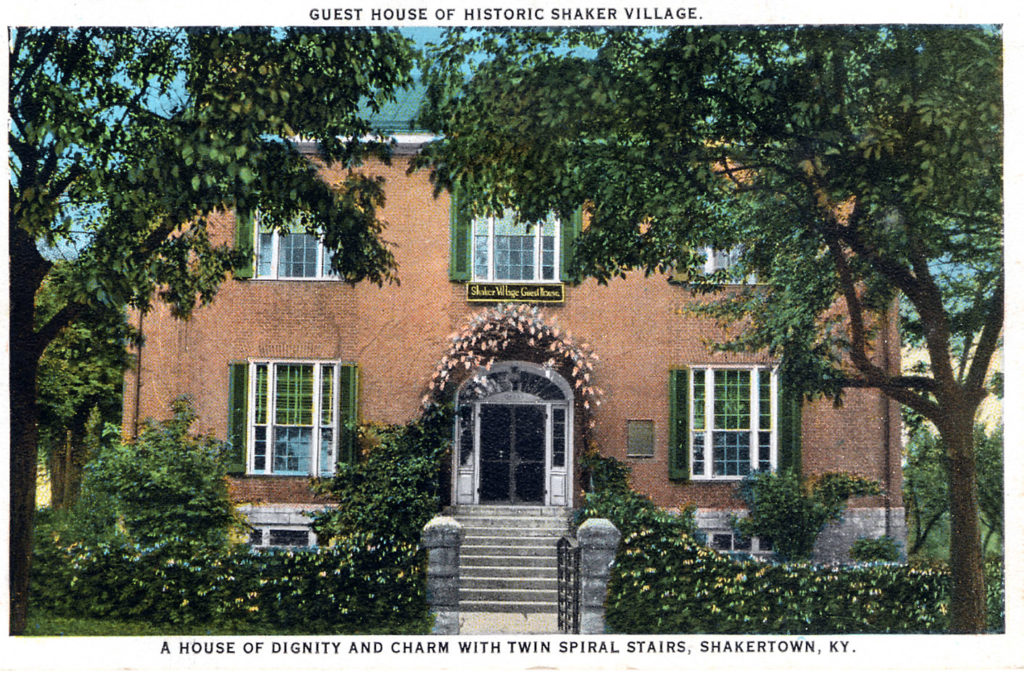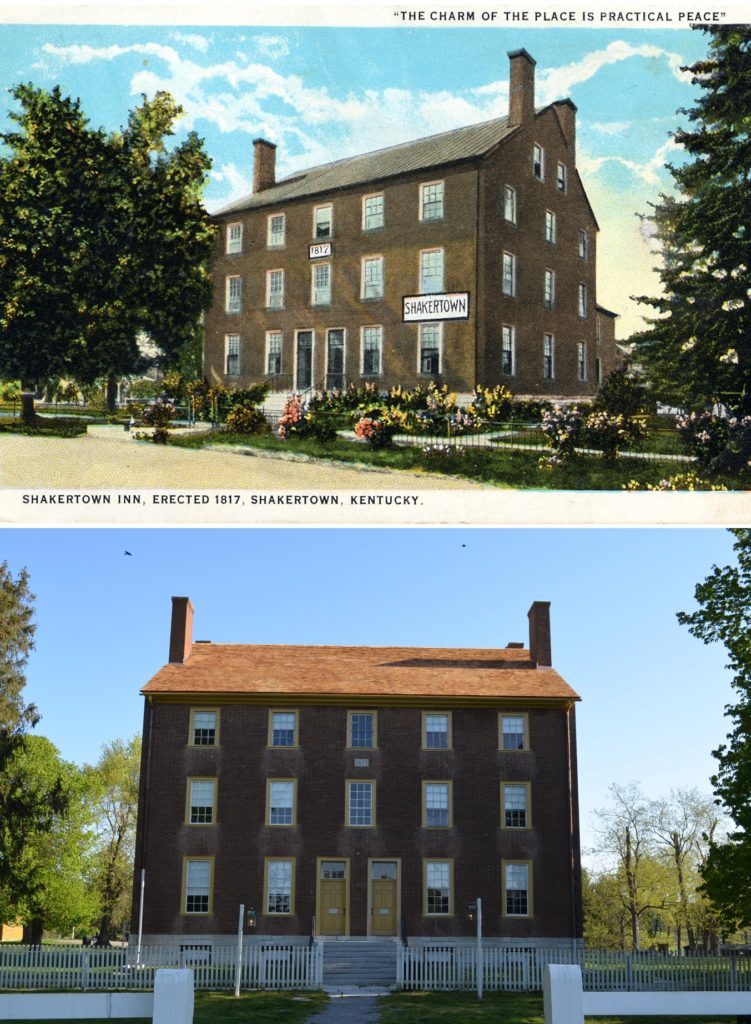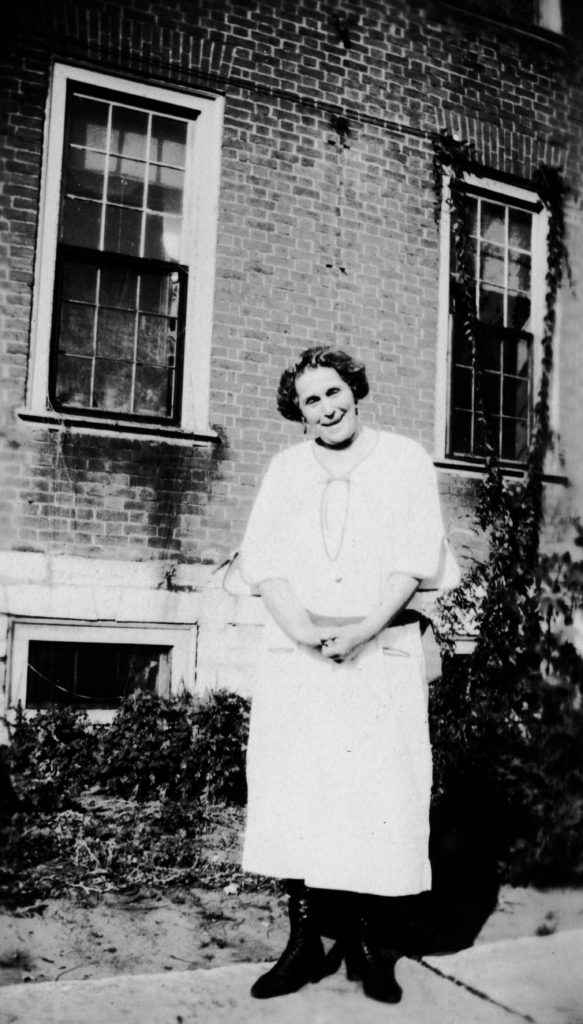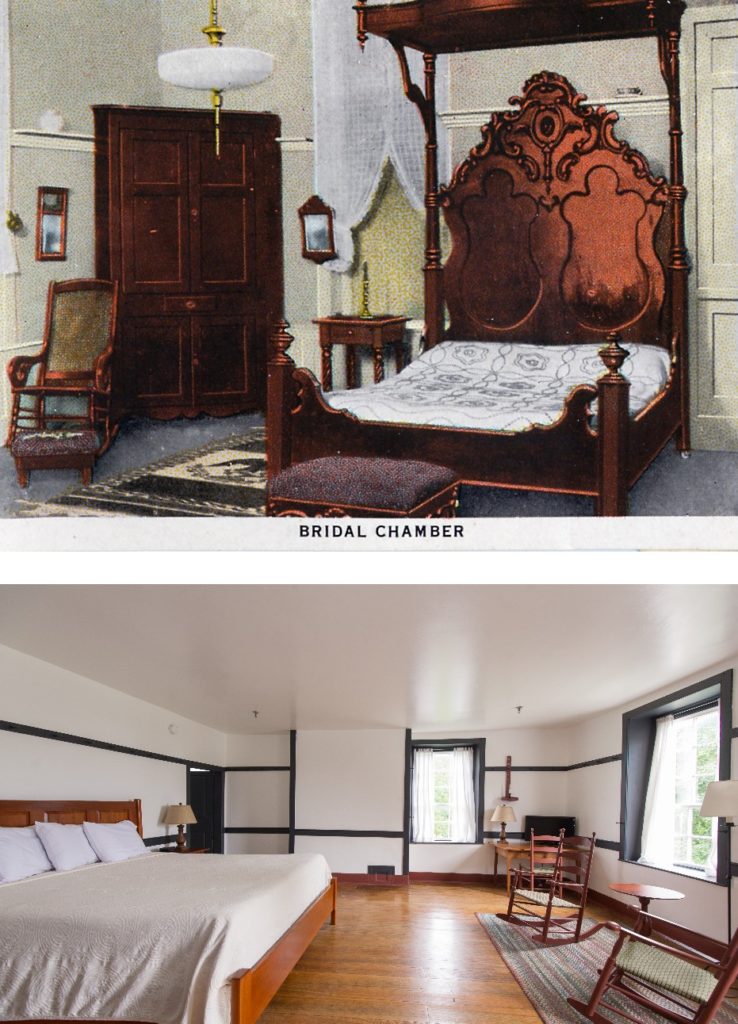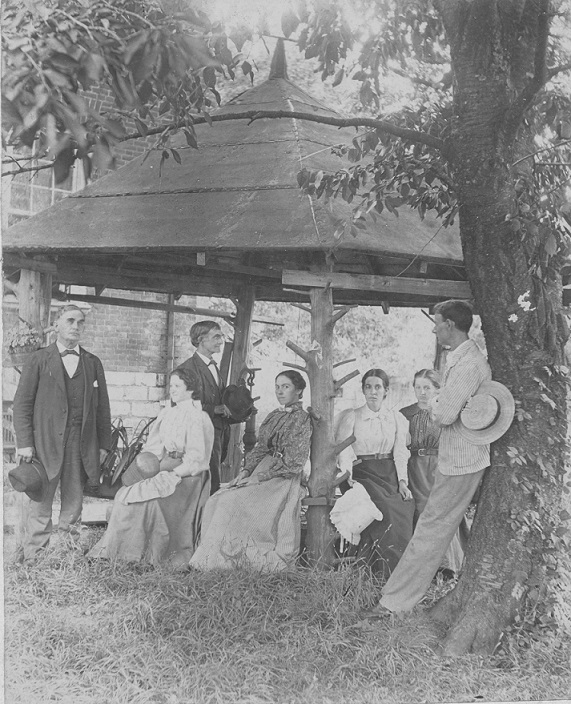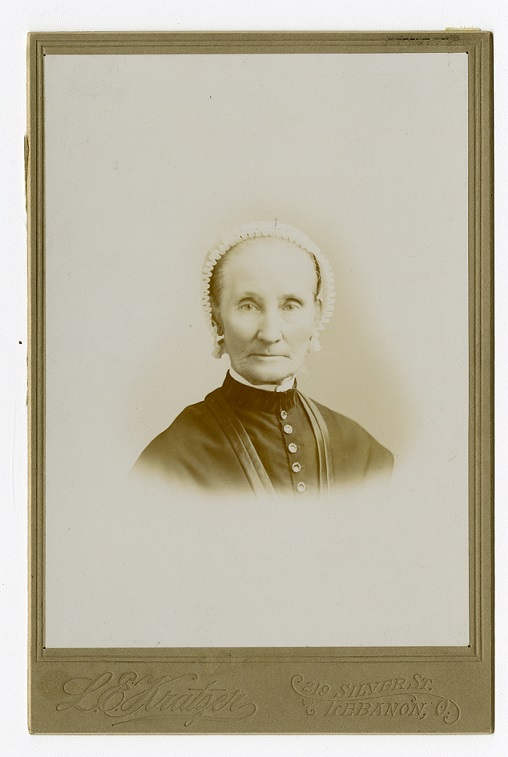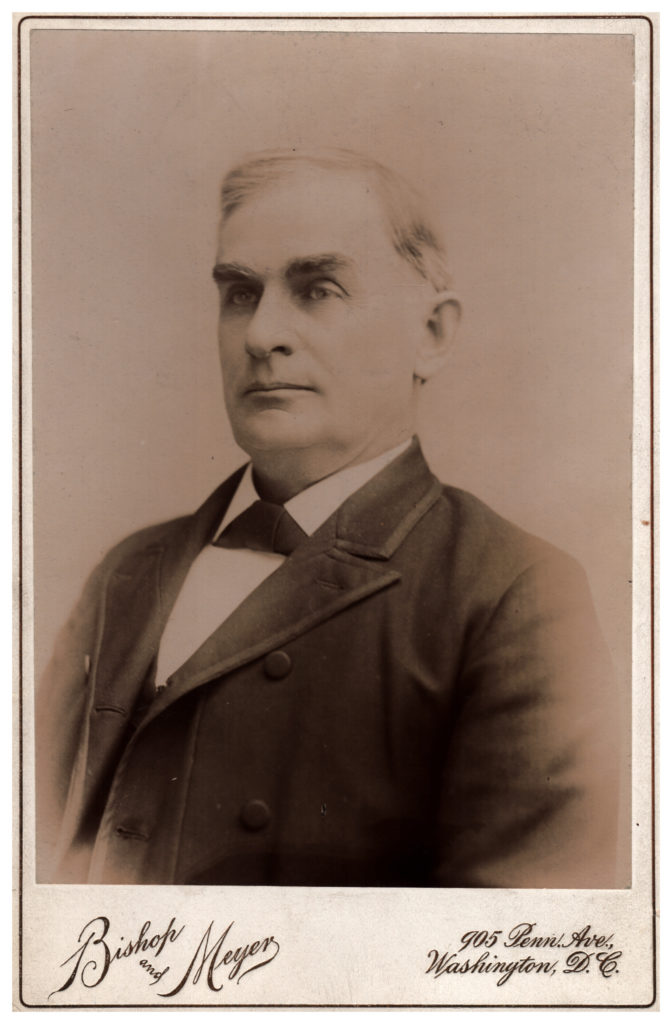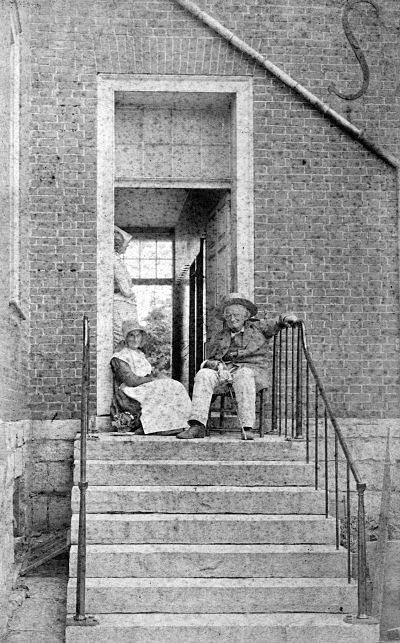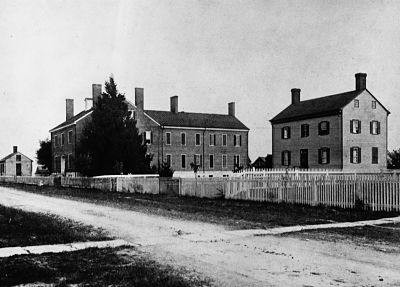Aaron Genton, Collections Manager
Social distancing.
Stay at home orders.
No school.
No worship.
Essential activities only.
Take care of each other.
Sound familiar? While this sounds a lot like things that we’ve been experiencing for the past three months, all those things actually refer to the lives of the Pleasant Hill Shakers from December 1850-February 1851. In mid-December, a few of the folks in the Centre Family came down with a sickness, and within a week it was confirmed to be smallpox. On December 18, the East Family Deaconess recorded this:
“There being a contagious disease prevailing at the Centre Family at this time called the varioloid, it was concluded this morning not to take up school any more for the present & discontinued all intercourse between the Families as far as practicable, so as to prevent the spreading any further if possible…and now all business is mainly suspended in that Family except to cook and wash and take care of the sick etc.” (East Family Deaconess Journal, Filson Historical Society Shaker Collection v.4)
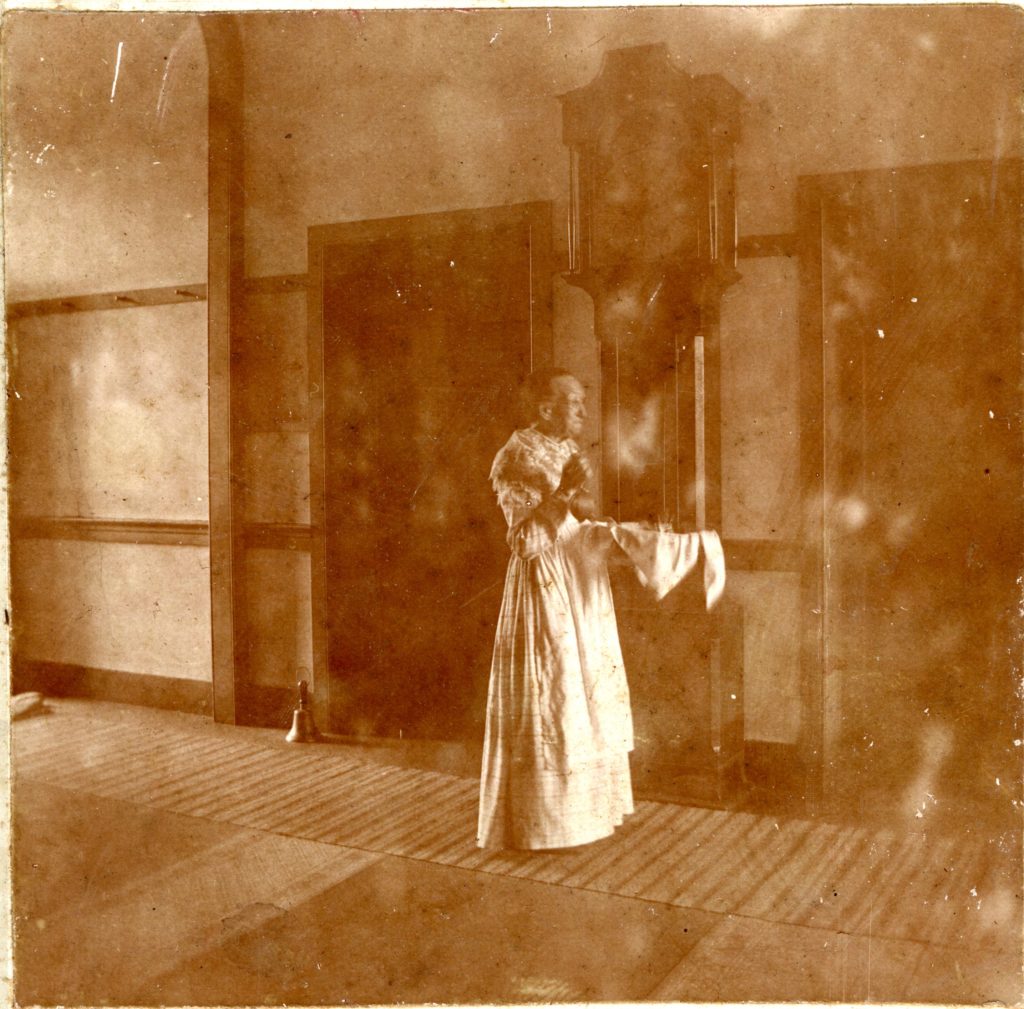
While the village leadership moved quickly, they weren’t able to totally contain it – cases later arose in the East and West families. In the following weeks, the Shakers tried to navigate their daily routines while managing this illness. School for the boys and girls were both suspended. Normal routines were disrupted for weeks, and nowhere was this more evident than in the weekly Sunday worship in the Meeting House. This was an important time for the entire community to meet, and yet week after week journal entries on Sunday read “Meeting at home.”
On January 28, good news finally arrived…but with an exception: “Tuesday 8 oclock P.M. We assembled in the meeting room, and the Elders informed us that the varioloid had so far subsided that there but three cases remaining, one in each Family, and they were kept to themselves, so that it was thought to be safe for the Families to resume their usual intercourse and pursuits. (A separation having been kept since about the 18th Ult., to prevent the disease from spreading.) But it was not thought to be prudent to assemble at the meeting house next Sabbath &c.”(FHS Shaker Collection v.7) It would be March 1, almost 3 months in total, until they collectively met at the Meeting House again. From there, life appeared to return to normal.
Our experience with COVID-19 is not the first time that a disease has shaken life at Pleasant Hill. While it isn’t exactly the same (a localized smallpox outbreak vs. a worldwide pandemic), there are similarities in our experiences. So, I’d like to notice a few lessons that the Pleasant Hill Shakers can teach us as we start to transition into a new phase of life at Pleasant Hill.
It’s Okay to Go Slow
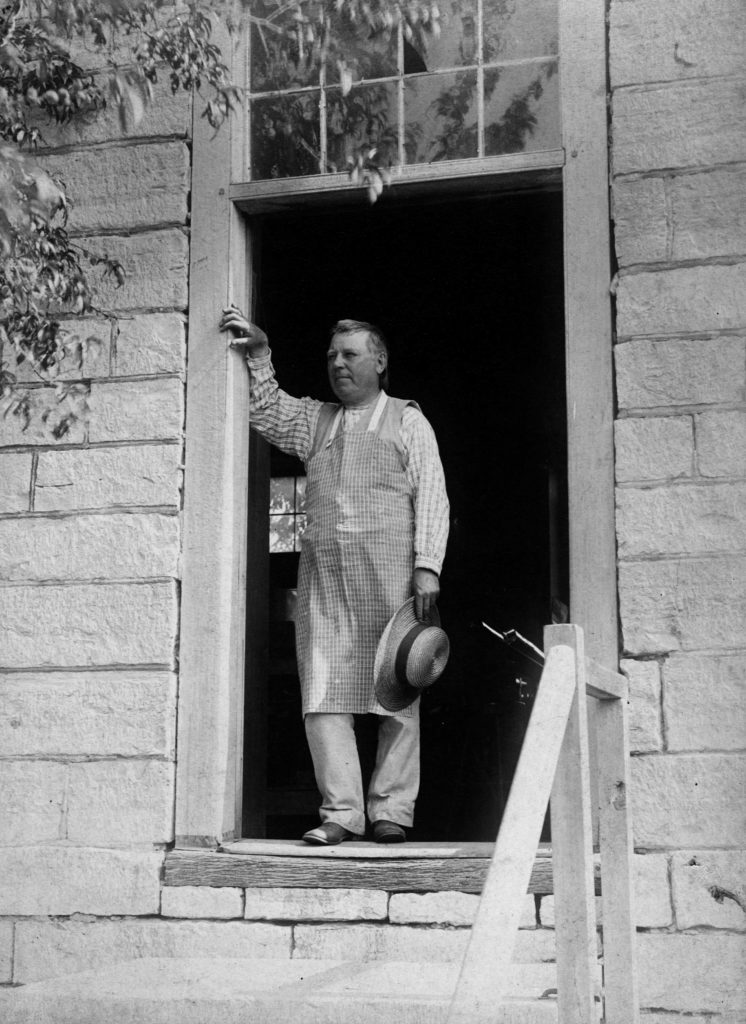
As noted above, on January 28, the Ministry felt like it was ok to resume normal activities, except for assembling at the Meeting House. It would be another month until that happened. This makes total sense, considering what we know about Shaker worship – lots of people in close quarters, singing, dancing, shouting, shaking. Participating in this activity would likely be worse than a bunch of modern teenagers spending their spring break together at the beach. Instead, the Ministry chose a course of deliberate, phased reopening, to use terms that we are used to today.
It’s Okay to Modify Your Behavior
“One o’clock, P.M. Meeting at home by reason of affliction, the varioloid still prevailing at the Center family. We had an orderly meeting, attended with considerable life and zeal…We made no donation of clothing for fear of conveying the varioloid or small pox to such as might receive them.” (25 December 1850, FHS.v.7)
Just because they couldn’t meet at the Meeting House, didn’t mean they lost their roles or identities as Shakers. They met at home for 3 months, still worshiping with those that were able. They even suspended the donation to the poor on Christmas, an important yearly practice, because of this. They modified their behavior because the unique circumstances demanded it, and once it was over, they were luckily able to resume their standard routines.
Clean!
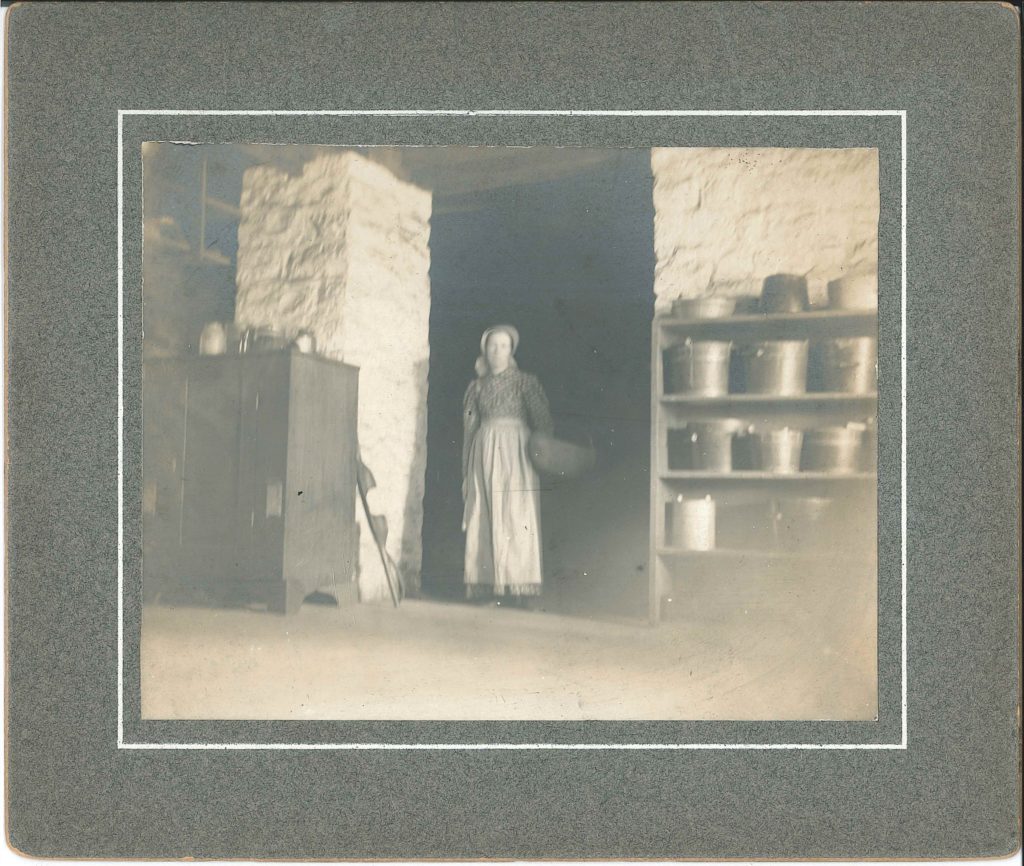
“This morning the Center Family took their bed clothes & wooling clothing to the fulling mill to wash & clear out the small pox and the next day they went on washing the walls of their dwelling house and taking up carpets brushing & cleaning them and every thing else until they had cleared off every thing that was tainted with the pox.” (15 January 1851, Polly Harris Journal, Harrodsburg Historical Society Collection)
Don’t Forget About Others
“I went to the East House to see the sick folks and found them bad- indeed Elizabeth was bedfast, Electa’s life was fast running away with a cancer, Triphena was also confined to the room with a swelling on her thigh, John Badget had been confined to his room for some time with a cut on his foot and was now fast able to walk about a little, Samuel was quite weak & his sense much scattered but still went to the shop.” (3 December 1851, Polly Harris Journal)
Polly Harris lived in the West Family. She didn’t have to go to East Family (and she probably shouldn’t have), but I imagine she wanted to check on them. Other times, medications and vaccinations were supplied to those in need. Others had to chip in and help with jobs that couldn’t be done because of sickness. And during some of the home meetings, they would send their love to those who were sick in other families. The point is that they didn’t forget about the others around them who might need assistance.
Remember, There’s a Lot Going On
“In consequence of the small pox The Ministry & the Center Family alone attended the funeral of our Worthy Brother [Abram Wilhite] at 8 o’clock in the morning It being a very pleasant pretty day for the season of the year the Brethren & Sisters all went to the Grave yard that ware able.” (11 January 1851, Polly Harris Journal)
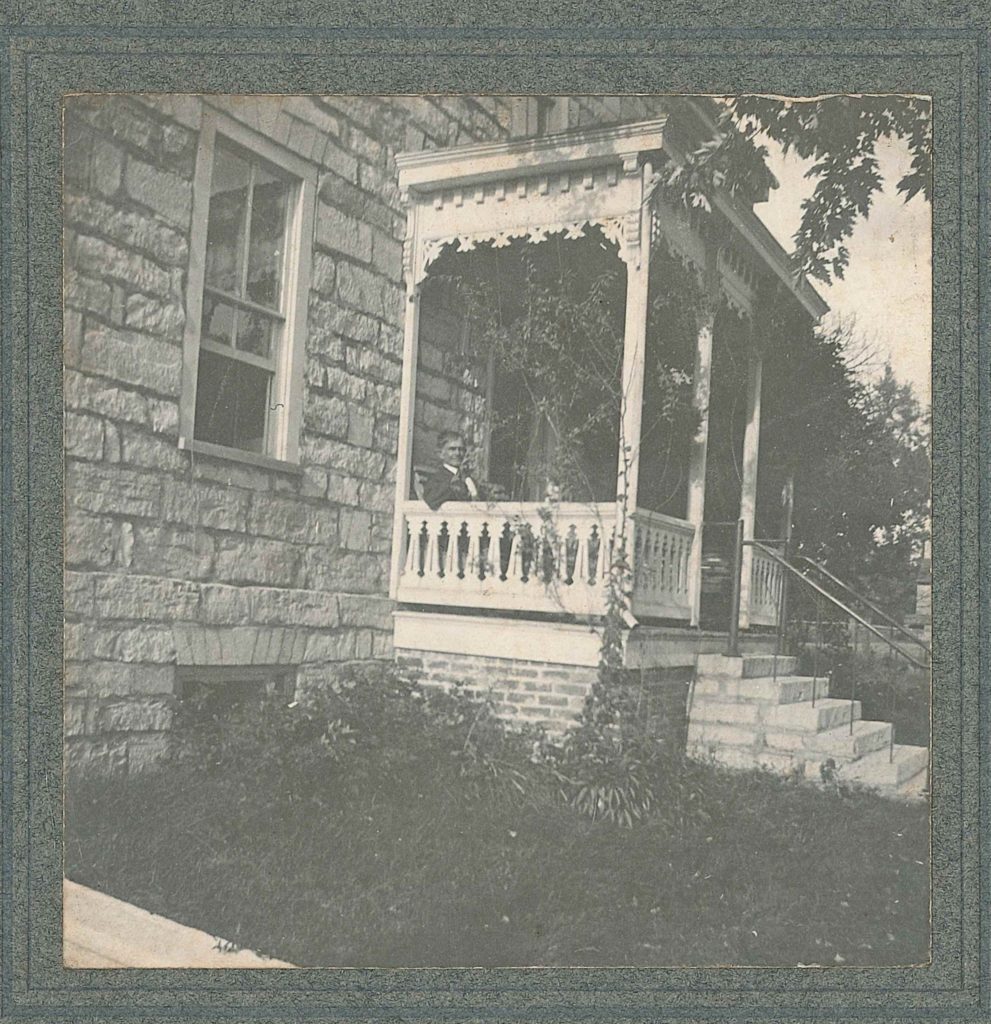
When she visited the East Family, Polly Harris found a lot of sickness that wasn’t smallpox. Then on top of this, there were members of the community dying, some from smallpox, but also from other causes, like Abram Wilhite. Some were unable to attend the funeral for obvious reasons, but according to another journal, some didn’t attend because they were “afraid of the pox.” Add this to the already difficult disruption of daily lives that were normally very structured. I can imagine this being extremely overwhelming to many of the Shakers.
As an extension to the previous point, don’t forget that others around you are living through a lot right now – sickness, death, unemployment, fear. Then add the growing civil and racial unrest in our country to the mix. No matter how you experience this, don’t forget about the others around you processing the exact same things, but perhaps in very different ways. There is a lot going on right now.
Be Thankful
“One oclock Meeting to day was held at home…We was called upon in the commencement of the meeting by the elder brother to be mindful to walk thankfully and humbly before God for the great blessing we now enjoy of good health while so many of our worthy brethren and sisters are suffering in the other families from the destestible disease Small pox, bed colds &c.” (12 January 1851, FHS v.6)
When “Normal” Returns – Make it Memorable
“Holy Mother Ann’s Birth – This day was kept in commemoration of our ever blessed Mother’s birth we assembled to the meeting house at the usual hour one, where we met the good ministry and the church at large, there beloved Elder James addressed the assembly thus, “Beloved friends, brethren & sisters, I feel thankful to meet with you again in this most favored and sacred place, after an absence of near three months, and will be well for each one if they have come prepared to commemorate in truth and reality our Mothers birth, mission &c, and do honor to the cause of salvation as made manifest to us, her children through her painful travel and soul sufferings, we therefore combine together to sing dance and give honor, praise and glory to her most sacred and worthy Name…” (1 March 1851, FHS v.6)
“We then went forth in the march & circular dance, being informed at the same time that the guardian angels that attended Jesus Christ and Mother Ann while on earth were present, together with a number of our deceased friends who once lived in Pleasant Hill.” (1 March 1851, FHS v.7)
Mother Ann’s birthday was always a notable day for the Shakers. They sang and danced, and were even “visited” by a host of angels and spirits. While this might have been a pretty normal occurrence for this time period, I believe that the day as a whole had a memorable quality because of the events of the previous three months. If you could talk to the Shakers who were there that day, what would they remember?
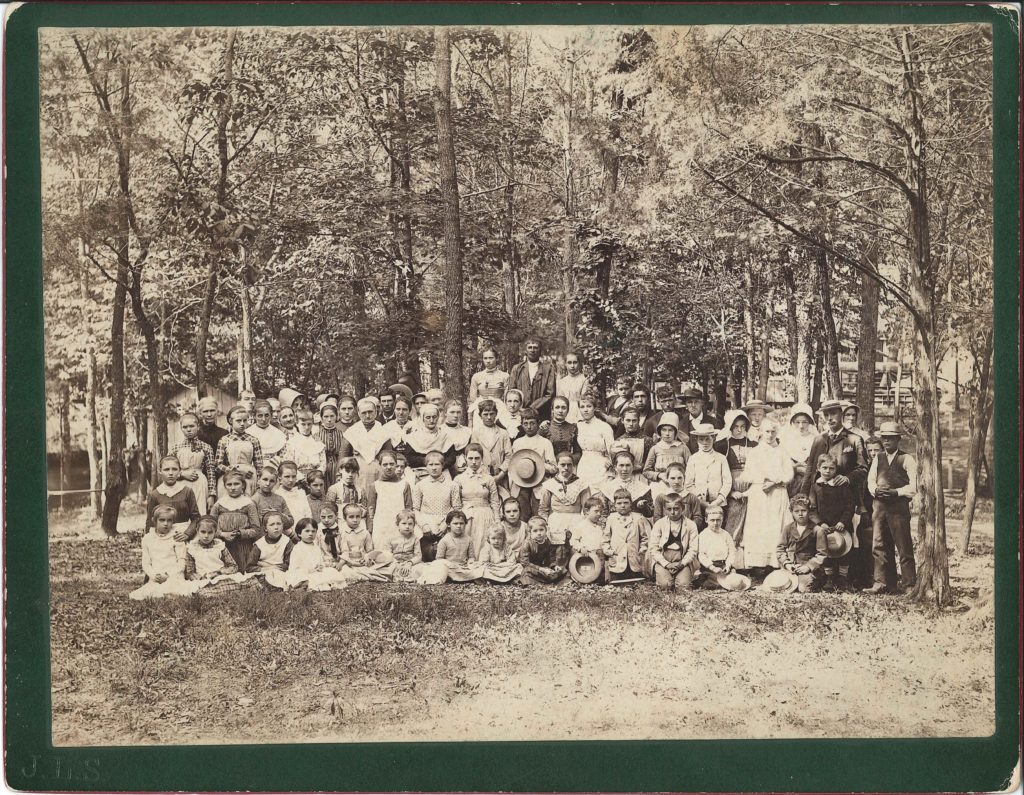
I don’t pretend to know exactly what the future holds, but we can be encouraged by the experiences of the Pleasant Hill Shakers 170 years ago. They can give us a lot to think about. Don’t forget that even though they lived communally, separated from the outside world to a degree, they were people just like us trying to navigate all the challenges that this world threw at them. I believe, on some level, we can all sympathize with the sentiment expressed by this writer in February 1851:
“Our meetings from the last date have been orderly and ordinary up to the first of March. All seemed to be eager and anxiously waiting for a cessation of the disease, and a restoration to health, a restoration to free intermingling one with another in sociality and friendship and especially to meet again in the sacred worship of God, there to embrace each other in the sweetest enjoyment of gospel love and affection.” (FHS v.6)
